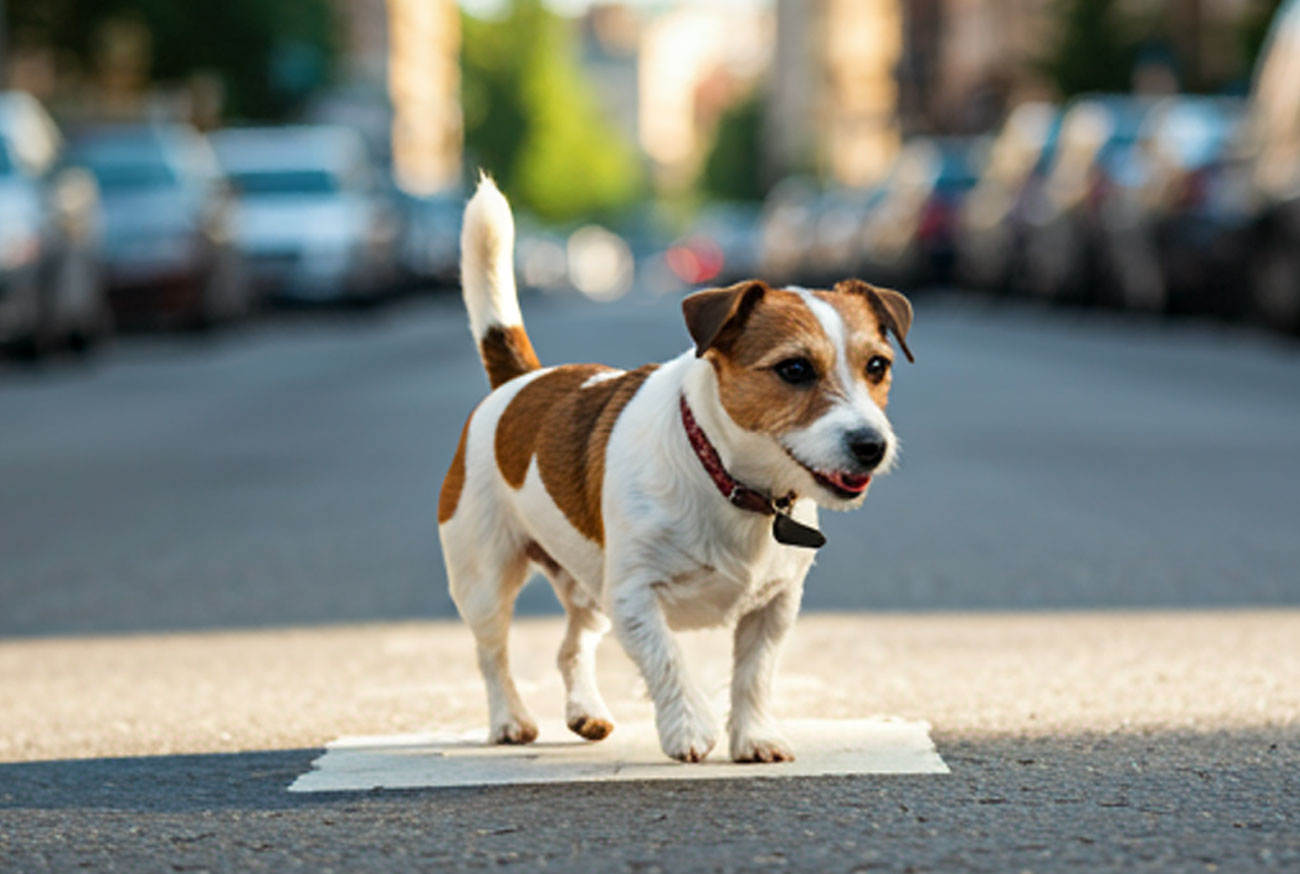In this post, we will explore this important topic and discover how we can create a more harmonious coexistence between humans and animals.
Dogs running loose on the streets: The responsibility is yours!
Many people believe that a loose dog on the street doesn’t belong to anyone, but the truth is that the majority of them once had a home. Abandonment is the main cause of the increase in the population of street dogs. And those who abandon an animal are committing an environmental crime and an act of cruelty.
Why is it important to have a dog identified?
- Makes identification easier in case of loss: An identification tag with the animal’s name and the owner’s phone number can be the key to reuniting with the family.
- Shows responsibility: An identified dog shows that its owner cares about the animal’s well-being and the safety of the community.
- Prevents euthanasia: Animals found on the streets without identification are taken to shelters and are often put down due to lack of space.
The risks of a loose dog on the street
- Traffic accidents: Loose dogs on the streets are more likely to be hit by cars.
- Fights with other animals: Interaction with other animals can lead to conflicts and serious injuries.
- Disease spread: Unvaccinated dogs can transmit diseases to other animals and humans.
- Damage to public property: Loose dogs can cause damage to gardens, parks, and other public spaces.
- Nuisance to the community: Excessive barking and waste on the streets can bother neighbors.

What does the law say?
Brazilian law provides penalties for those who abandon animals and for those who fail to properly care for their pets. Additionally, many states and cities have specific laws regulating the welfare and guardianship of domestic animals. It's important to know and comply with the laws in your municipality.
How can we help?
- Don’t abandon your pet: If you can no longer care for your dog, look for an NGO or shelter to surrender it to.
- Spay or neuter your pet: Spaying and neutering is the most effective way to control the population of street dogs.
- Adopt an animal: By adopting an animal, you’re giving a new chance at life to a helpless being.
- Promote the cause: Share this post and other information about animal welfare on your social networks.
- Help NGOs: Donate food, medicines, cleaning products, and other supplies to NGOs that care for abandoned animals.
Understand that...
Having a dog is a big responsibility. By taking good care of our animals, we’re contributing to a fairer and more compassionate world. Together, let’s build a future where all animals have a home and are treated with respect and dignity; a loose dog on the street is not okay.
Share this post on your social networks and help spread this message!
People also ask
Who is responsible for a loose dog on the street?
Responsibility for a loose dog on the street is a complex issue and can vary depending on local laws. In general, primary responsibility lies with the pet's owner. However, in cases of abandonment, responsibility may be shared with the public authorities, who must provide population control policies and animal welfare measures. It’s important to note that society as a whole also has a role to play, through reporting mistreatment and supporting animal protection initiatives.
Is someone liable for hitting a dog with their car?
Yes, someone who hits a dog with their car may be civilly liable for damages caused. Compensation may cover veterinary treatment costs if the animal survives, or financial compensation to the owner in case of the animal’s death. Civil liability may extend to the vehicle’s owner, depending on the circumstances of the accident. It’s important to emphasize that traffic laws and the Civil Code establish rules for such cases.
What is the penalty for leaving a dog loose on the street?
The penalty for leaving a dog loose on the street can vary depending on the laws of each state and municipality. In some cases, it may be considered an administrative infraction, subject to fines. In others, it may be classified as animal cruelty, with penalties including detention and fines. It is essential to consult local laws to understand the specific penalties.
What does the law say about animals loose on the street?
Regulations regarding animals loose on the street vary by country and municipality. However, generally, laws prohibit animals from roaming freely in public areas, requiring that they be kept under the care of their owners. Additionally, these laws often set rules regarding animal identification, vaccination, and spaying/neutering to ensure animal welfare and public safety. It’s important to note that animal protection laws are constantly evolving, and it’s essential to stay updated on legislative changes.

















Add comment